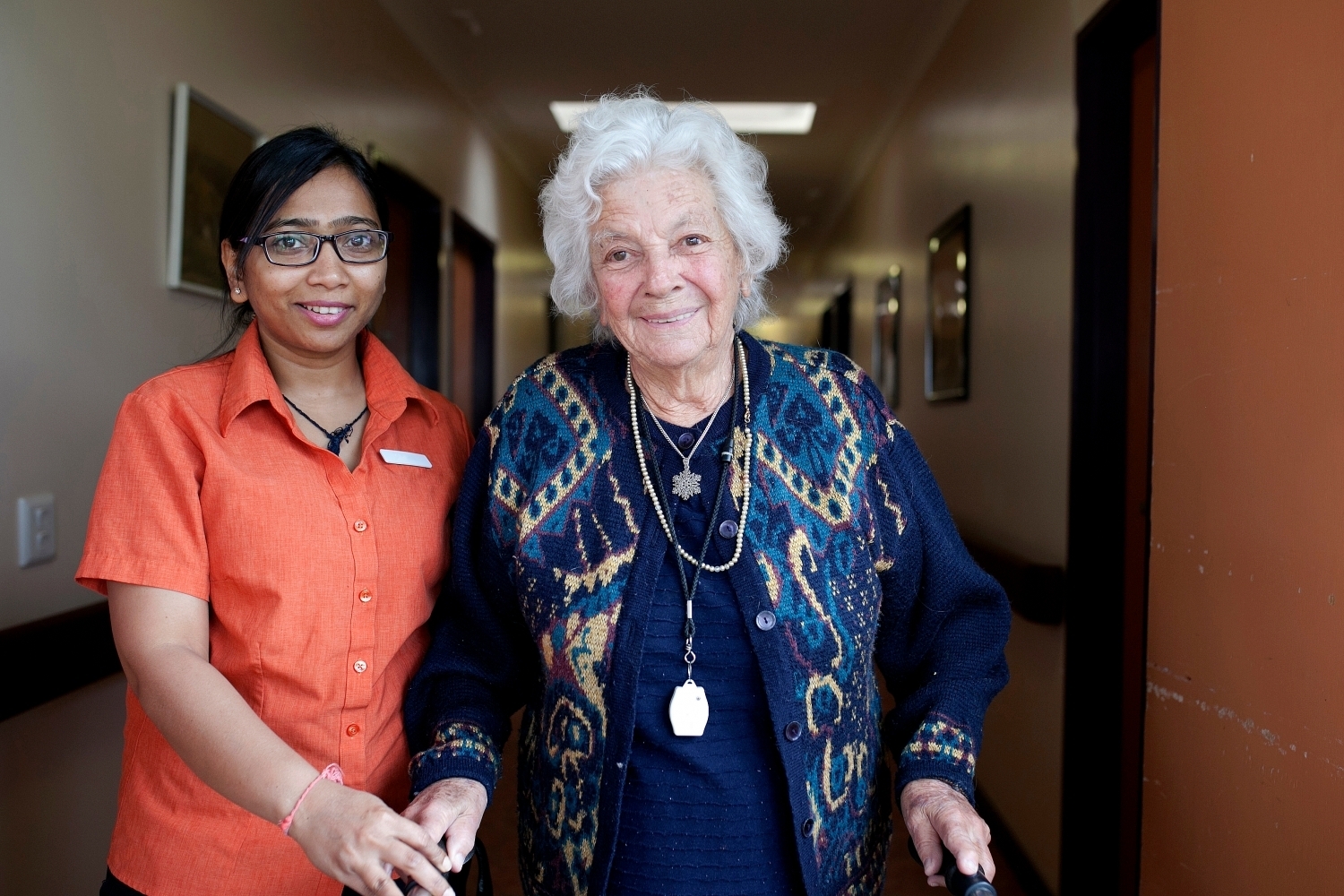
Supporting the aged care sector to meet the needs of people at the end of their life requires cohesive effort that equips workers and services within the aged and palliative care sector to best cater for such specialised needs. Achieving this requires the highest levels of co-operation – which is happening with the End-of-Life Directions in Aged Care (ELDAC) project, being co-lead by Flinders University’s Research Centre for Palliative Care Death and Dying [RePaDD].
ELDAC, a national project funded by the Department of Health and Aged Care, is a consortium of three universities (Flinders University, Queensland University of Technology and University of Technology Sydney) and four peak bodies (The Aged & Community Care Providers Association, Australian Healthcare and Hospitals Association, Catholic Health Australia and Palliative Care Australia). ELDAC was formed to introduce change in how aged care supports end of life and to build both workforce and sector capability to make these changes.
The scale of such an undertaking is huge. As a multi-faceted change program, ELDAC provides a website that offers toolkits for use by individuals and services, plus access to a repository of knowledge building resources, service development through linkages program, and a technology and innovation arm which offers versatile digital tools (including a popular home care app) and an interactive self-care room.
“We adopt a strong evidence based and co-design approach when building all of our tools. This includes involvement of the end-users and stakeholders in the industry early on in the product development cycle to understand what they need, to figure out a solution that is practical and easy for them to use,” explains Dr Priyanka Vandersman, ELDAC Research Fellow based at Flinders University.

“We take our technology products back to our Reference User Group, to make certain that the products we are building meet the expectations of the end users and perform as desired.”
Because ELDAC is designed to work across the residential, home care and primary care setting, its scope extends beyond resource provision and reaches into facilitating interconnectedness across these settings.
“We are also running a campaign to normalise conversations about death and dying within the aged care sector,” says Dr Vandersman. “It is important that we make these conversations comfortable and not confronting for the sector so that the engagements are meaningful.
The vast scale of the ELDAC program has already extended through two three-year funding periods. The initial block of funding, from 2017 to 2020, enabled the project team to commence building the tools and for ELDAC’s purpose to be promoted and familiarised within the sector.
The current block of funding, which concludes during 2023, has enabled the project team to refine and expand the suite of available tools, but also to engage more widely with the aged care sector so that the tools meet changing workforce needs.
“It has been especially important for the ELDAC program to be adaptable and nimble, especially because major challenges and changes have been thrust upon the sector since the program began – including outcomes of the Royal Commission into Aged Care, the subsequent introduction of new Aged Care Quality standards, and also sweeping disruptions caused by COVID-19,” says Dr Vandersman.
“It highlighted that co-designed projects work effectively when we respect that all workers in the sector are extremely busy and under intense pressure, but they have a desire to engage and we found great desire from people within the sector to work with us and reach better outcomes.
“It also underlines the value of a university being at the centre of such a vast collaborative project, because it brings powerful research rigour that underlines the strength of evidence-based, robust resources.”
Dr Vandersman says much has been learned from the collaborative process that adds to the existing body of knowledge, and which can now be applied to other ventures and serve as a model of co-operation to achieve improved outcomes.
“ELDAC is not only a prime example of how people from different settings and institutions can come together to build, implement and test new products, but also serves as a great example of how effective intersectoral collaborations can help upskill and empower the aged care sector to respond appropriately to the needs of older Australians in the last months of their lives.”

